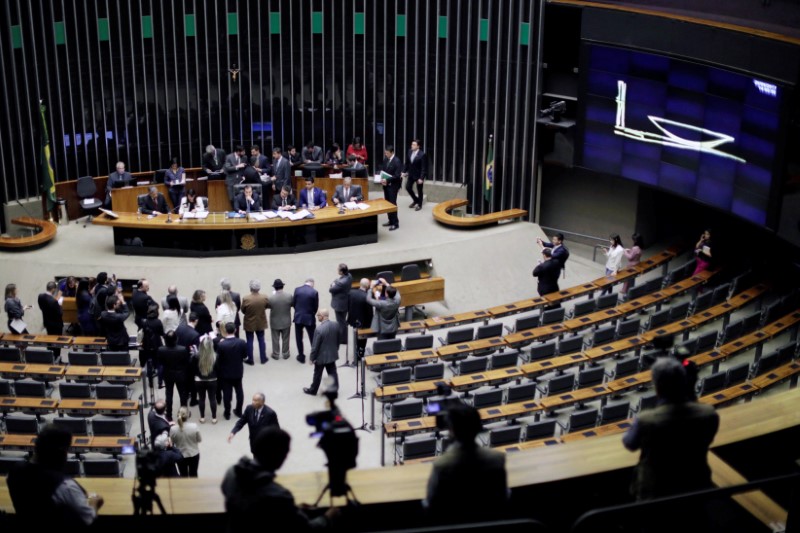BRASILIA (Reuters) - Brazil's lower house on Wednesday approved a new fiscal framework bill, a major victory for President Luiz Inacio Lula da Silva's administration as it tries to balance public accounts while taming explosive debt growth.
Lawmakers in the chamber voted 372-108 to pass the main text of the bill on late Tuesday that is set to replace Brazil's current spending cap, which has been breached several times in recent years to allow higher government spending.
Federal lawmakers rejected all amendments that could alter the bill's main text, and now the proposal will be sent and voted on at the Senate.
Markets welcomed the overwhelming approval, with the Brazilian real strengthening roughly 0.7% against the dollar and interest rate futures trading down on Wednesday.
"The actual rule is tougher than previous versions of the bill suggested," Banco Original's Chief Economist Marco Caruso said. "The 372 votes were also positive as markets might now start to think it will be easier to pass a tax reform".
Under the new fiscal rules, government expenditures will not be allowed to rise by more than 70% of any increase in revenue, with spending growth also limited to between 0.6% and 2.5% per year above inflation.
If the goals are not met, expenditure growth will be restricted to 50% of revenue increases as a penalty.
"It was an important victory for the country," Institutional Relations Minister Alexandre Padilha said after the vote, in which Lula's leftist administration managed to garner support from right-leaning parties to pass the bill.
"This measure will allow for sustainable growth combining social and fiscal responsibility," he added.
The government expects the new fiscal rule to allow it to erase the country's primary deficit by 2024, before achieving a primary surplus equal to 0.5% of GDP in 2025 and 1% of GDP in 2026.
Finance Minister Fernando Haddad also celebrated the wide approval margin, noting it signaled the government must seek "balance" in future projects including a long-awaited tax reform expected to be voted on by Congress later this year.

The rules will replace a more rigid cap on spending that limits growth in expenditure to the previous year's inflation rate.
"Passing the main text was a major step forward," said Felipe Salto, chief economist at broker Warren Rena. "The framework has what is necessary to avoid a bad fiscal situation."
